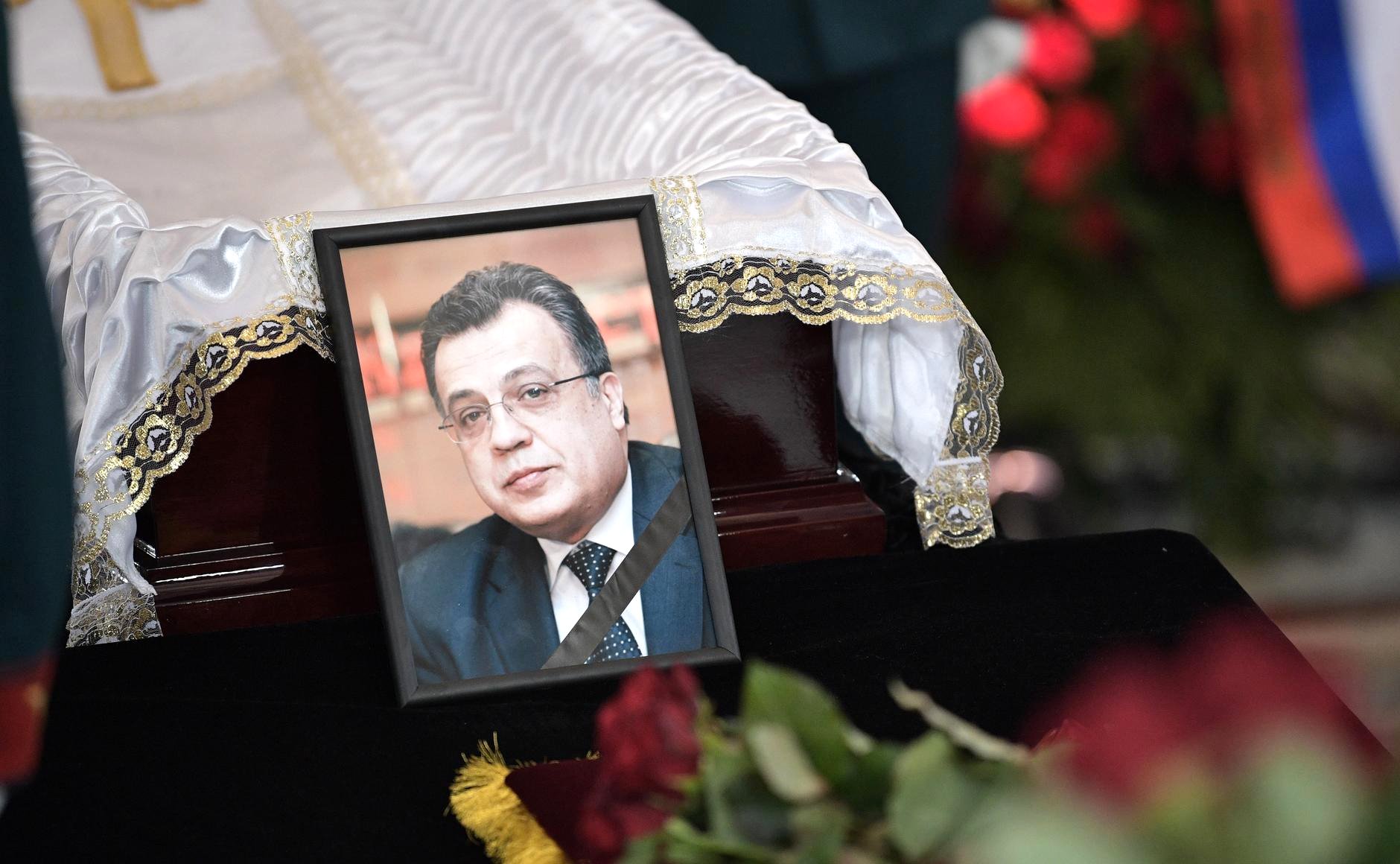On Friday, the prosecutor’s office of Turkey revealed that there was a previous attempt on Russia’s ambassador to Ankara before his assassination on Dec. 19, 2016. The Fethullah Terrorist Organization (FETO) has been indicted for both events. 28 people have been recognized as guilty, including the oppositional Islamic preacher Fethullah Gülen. Andrey Karlov, the Russian ambassador, was assassinated at an art gallery in the Turkish capital on Dec. 19, 2016, by Mevlüt Mert Altıntaş, an off-duty police officer linked to FETO. Altıntaş was shot dead by police during an ensuing standoff.
In the indictment, it is emphasized that the motive for the assassination of the diplomat was to provoke a diplomatic incident that would damage Turkish-Russian relations. According to the conclusion, the assassination attempt was planned over half a year. It is noted that the conspirators initially planned to attempt the murder in June 2016. Karlov was anticipated to attend a traditional Iftar (an evening meal during Ramadan) for heads of foreign diplomatic missions in the headquarters of the ruling party of Turkey, however, the ambassador did not attend and was abroad during the event.
Eight people were arrested with Karlov’s murder, four of whom are police officers. Among the detainees, there is the head of the Guru Media Broadcast Group, Hayreddin Aydınbaş, and Mustafa Timur Özkan, the organizer of the art exhibition where the ambassador was assassinated. The Turkish authorities confer the responsibility for the crime on Gülen’s organization, FETO. Gülen has, in turn, rejected all accusations.
A short biography of Mr. Karlov:
From 2007 to 2009, he was the deputy director of the consular department of the Russian Foreign Ministry.
From January 26, 2009, to July 12, 2013, he was the director of the consular department of the Russian Foreign Ministry.
From July 12, 2013, until the end of his life, he was the ambassador of the Russian Federation to the Republic of Turkey.
When appointed as ambassador, Russian-Turkish relations were at a low point. Colleagues of Karlov attribute the significant shift in policy and the warming of relations between the two countries, including the signing of the “Turkish stream” gas pipeline agreement, to the late ambassador. On January 9th, 2017, the street where the Russian embassy is located in Ankara was renamed in the memory of Andrey Karlov. Besides that, the art gallery where he was assassinated has been renamed in his honor.
Meanwhile, the White House has been considering the expulsion of Fethullah Gülen from the US. NBC News notes that the Trump administration has appealed to federal law enforcement agencies to recommend possible ways to lawfully expel the Islamic preacher. Extradition to Turkey has also been considered. White House sources have reported that among the avenues that have been explored include the legality of his Green Card visa. Gülen has lived in the US state of Pennsylvania since the 1990s.
On July 15, 2016, a group of soldiers and officers from the Turkish military made an unsuccessful coup attempt. As a result of the attempt 250 people died and more than 2000 were wounded. The military personnel responsible were found guilty of attempting to change the constitutional system with violence and premeditated murder. In total, 74 rebels were given life sentences. In May, a similar punishment was given out by the Izmir city court concerning 104 servicemen. 21 of them were sentenced to 20 years in prison for attempting to assassinate the Turkish President, Erdogan. In total, the Turkish prosecutor’s office urged the court to sentence 330 members of FETO to life imprisonment involved in the 2016 putsch.

















Leave a Reply